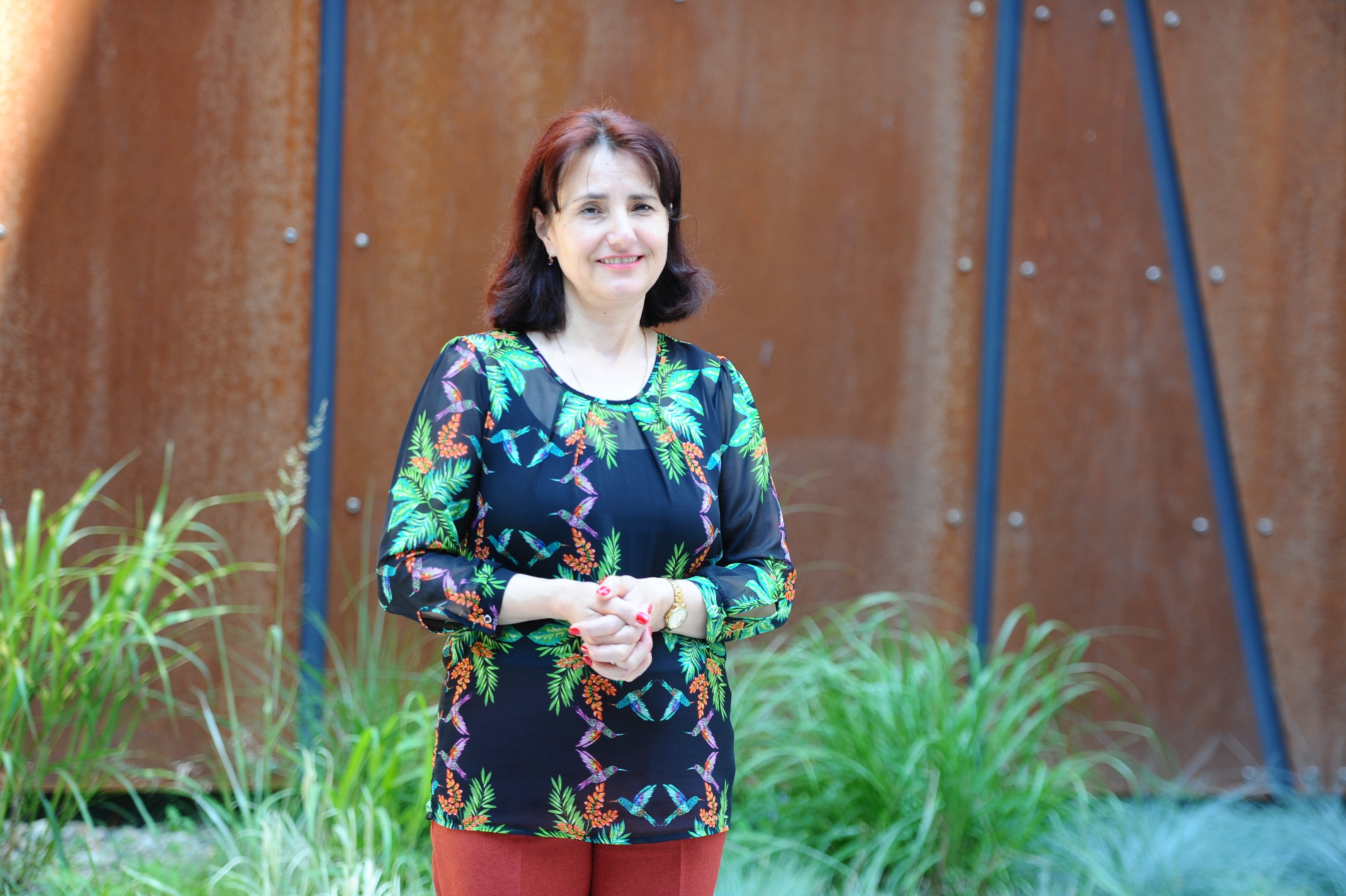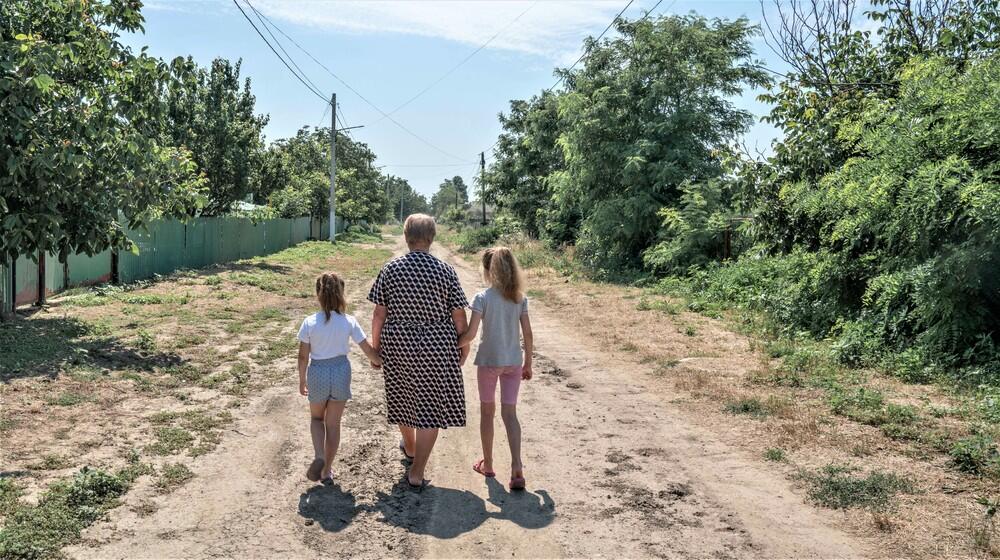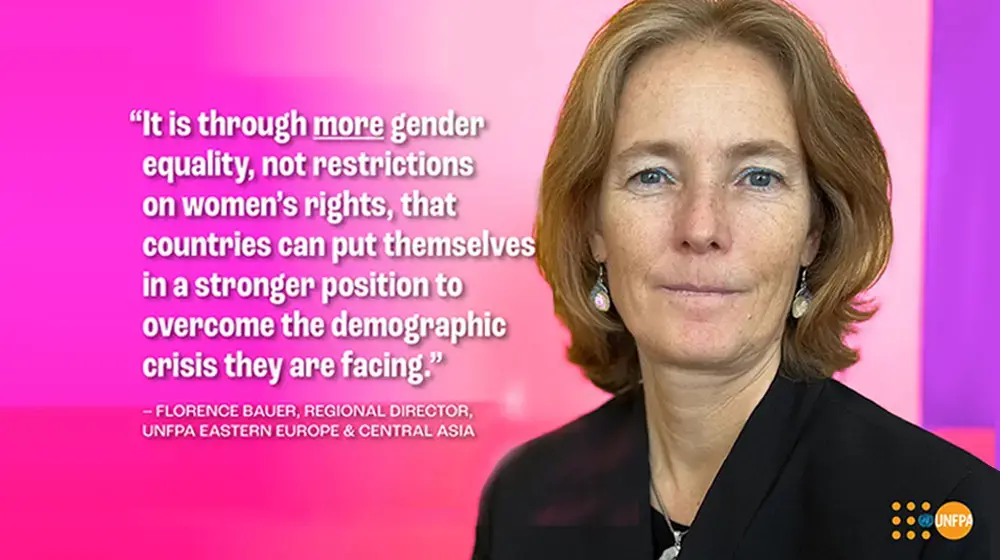Moldova has made a dramatic policy shift in the way it approaches demography: from viewing birth rates and migration through a security lens, it now puts people and their rights and choices first. With support from the United Nations Population Fund (UNFPA), this new approach will help strengthen the country’s resilience in dealing with demographic change.
Like many Moldovans, the Mamais left their country, their children, and their way of life to find jobs abroad, sending money home to support the family they had left behind.
Elena Mamais, their eldest daughter, was only five when her parents moved to Italy, and seven years would pass before the children could join them.
Pulled away from her school and friends in Moldova, Elena would eventually adapt to the unfamiliar but welcoming ways of Italy, as most children do, but the separation from her parents had been long and heart-breaking.
“My little sister didn’t even recognize them. We didn’t have Skype in those days. It was difficult,” said Elena.

A country in crisis
Outmigration in Moldova is a symptom of the major demographic challenges faced by many countries in Eastern Europe.
Studies in Moldova show that the working population, those aged 15-59, peaked in 2008 at 66.5%, and has been decreasing ever since. This trend has been exacerbated by outward migration: it is estimated that 1.8% of Moldovans leave the country each year to find work abroad, as Ms. Mamai’s parents did.
If things continue as they are, the country’s population will drop by over 28%, from 2.6 million to 2 million, by 2035, mostly due to emigration and low fertility.
The consequences could be devastating on several levels: undermining the sustainability of social protection systems, holding back economic development, and diminishing the country’s human development capacity. The figures also underpin a fear that the very existence of Moldova may be at stake.
To curb the demographic crisis, the Moldovan government launched a National Strategic Programme on Demographic Security for 2011-2025. But a full mid-mark assessment revealed the approach was ill-suited to solving the problem. The programme focused on boosting population numbers, for example, by increasing the birth rate. However, it ignored the factors surrounding the demographic drop.
“This focus mainly on fertility was unrealistic,” said Aliona Cretu, head of the Unit for Demographic Policies of the Ministry of Health, Labour and Social Protection.
This predicament is exacerbated by the brain drain, which sees many of the country’s better-educated young adults leave for the European Union, often working in professions far below their level of qualification. Keeping those talented young people at home became a major government goal.
“It is time to stop focusing especially on numbers and quantities and focus instead on quality, on personal individual development, on a more productive and healthier life, one with dignity. Security was more about increasing population,” said Ms. Cretu.
Under Soviet rule, the population of Moldova was considered a security issue and was treated as such. What counted during that period was increasing the population to produce workers for factories and soldiers for the armies— the “collective” was more important than the individual. In other words, numbers – births, returns and so on – were the measuring stick by which success was gauged.

A new theory of change
With advice from the UNFPA, the government shifted direction in 2016.
“The new demographic vision was based on human capital and on a human rights approach, which focused on the individual well-being of each Moldovan,” said Eduard Mihalas, Programme Analyst on Population and Development in UNFPA’s Moldova office. “The new focus was to be on demographic well-being rather than on demographic security, on the ‘how’ rather than on the ‘how many’.”
The shift was anchored in international experience and best policy practices, which indicated that reducing inequalities was one of the most cost-effective policy options to address these demographic issues. By improving conditions at home, fewer people would feel compelled to leave.
“We cannot stop people from leaving as long as they are better off abroad. We are a democratic society, we cannot just keep people in,” said Ms. Cretu.
In 2019, with the support of UNFPA and the Swiss Agency for Development and Cooperation, the National Bureau of Statistics provided Moldova with accurate demographic data by aligning it with international recommendations. This dramatically altered population figures by including official migration statistics for the first time.
It also backed the government’s decision to engage in a “whole of government” approach, getting all ministries involved in population issues rather than appointing the Ministry of Labour as the sole responsible entity.
An important part of this work was ensuring the country’s alignment with the United Nations Sustainable Development Goals (SDG) by changing the conditions that made life in Moldova difficult.
“The shift from demographic security would have been difficult without UNFPA,” Ms. Cretu said. “Not only did we benefit from expertise and funding, but also from a variety of approaches, ranging from UNFPA meetings with government and parliamentarians to policy guidance, expert exchanges and international meetings. UNFPA was instrumental in helping convince decision makers, and all this is crucial to the SDGs.”
Light at the end of the tunnel
At home, conditions appear to be improving, albeit slowly.
The government is addressing demography on several fronts. For example, by improving day care to help mothers go to work and promoting paternity leave—in Moldova, women often feel they have to choose between a career and raising children at home. Other government efforts include; financial help for young couples trying to buy a home, improvement of social security systems, the creation of bonds between generations and the development of healthy ageing policies and programmes to reintegrate young returnees.
“Moldova is changing,” said Elena Mamai, “it is more beautiful now and there are other prospects I hadn’t seen before, job opportunities that were not here.”
And it’s not just her. Several relatives who went abroad have now returned: they believe they can now build what she calls “a decent life” at home.
“I hope the government will improve things, even a little, so children can stay with their parents. If they could provide properly, parents would not leave.”
Still, conditions are not perfect.
“Some of my friends have thought of leaving but in the end, they decided to stay. If you are single, you can get a place to stay and a job but once you decide to have a family, then you may still have to leave to earn enough money to support them.”
It took Ms. Mamai more than a year to decide to leave Italy. She lost her job as a beautician because of COVID-19 and took the opportunity to rethink her life.
However, she’s not completely clear about the future. “I would like to find a job here as a cosmetologist, or perhaps I will go back to university,” she said.
But she plans to stay in Moldova and hopes her parents will join her.
“I hope someday they will return. They were born here, so were their parents, and I am now here. There is no place like home.”





